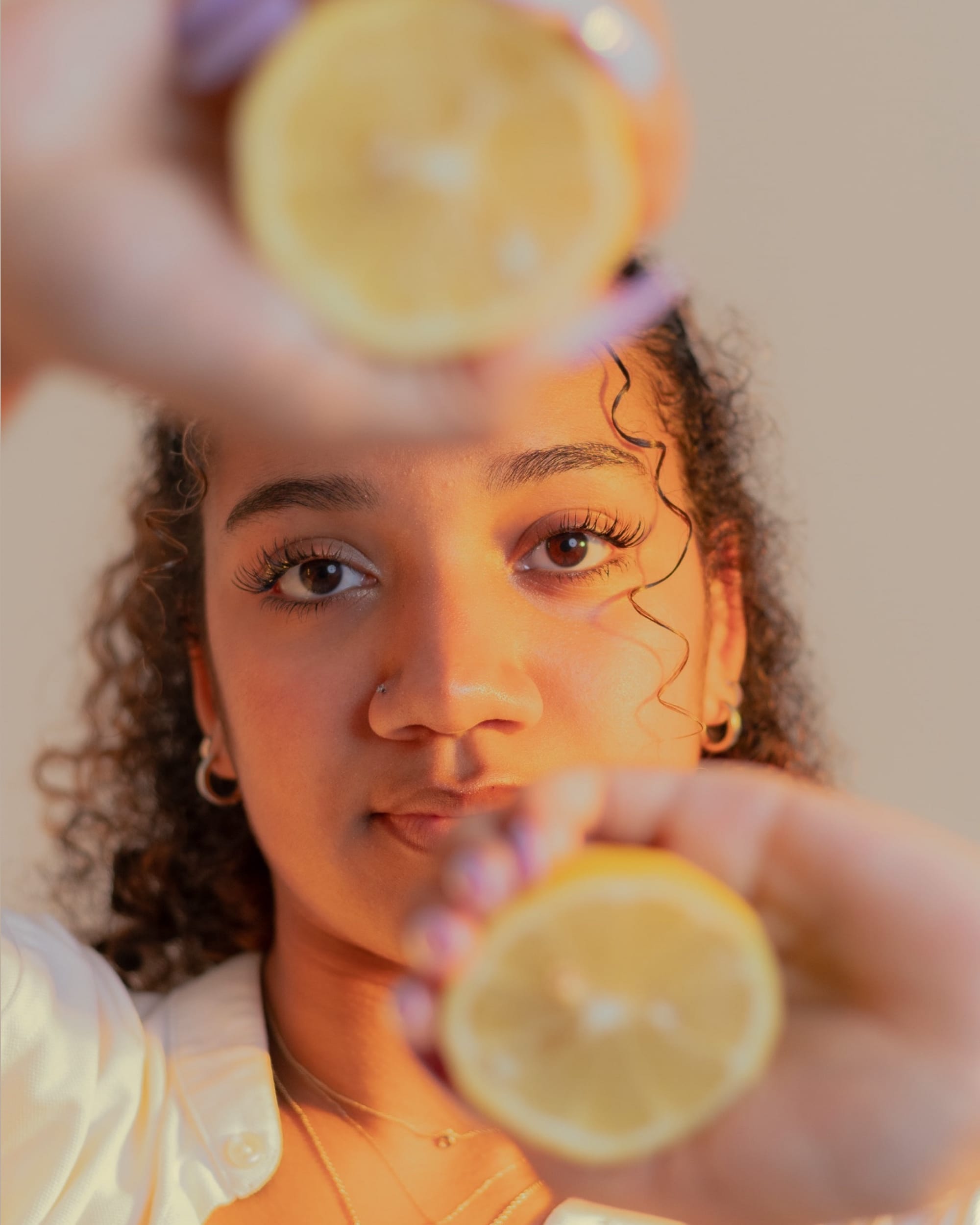Vitamin C: A Powerful Ally in the Fight Against Cancer?
Vitamin C, also known as ascorbic acid, is more than just a simple nutrient. It's an essential micronutrient that our bodies need to form bones, blood vessels, and maintain a healthy immune system.

Vitamin C, also known as ascorbic acid, is more than just a simple nutrient. It's an essential micronutrient that our bodies need to form bones, blood vessels, and maintain a healthy immune system. But here's where it gets really exciting: researchers have been investigating vitamin C's potential role in cancer prevention and treatment for decades!
The Vitamin C Champions: Where Can You Find It?
Ready to add some vitamin C to your diet? Here are some top sources:
• Green hot chili peppers (242 mg/100g)
• Guava (228 mg/100g)
• Sweet red peppers (128 mg/100g)
• Kiwi (92.7 mg/100g)
• Broccoli (89.2 mg/100g)
• Strawberries (58.8 mg/100g)
• Citrus fruits (53.2 mg/100g for oranges)
The Plot Thickens: How Vitamin C Fights Cancer
Vitamin C has an arsenal of powers when it comes to fighting cancer. Here's how it works its magic:
- Cancer Cell Assassin: At high concentrations, vitamin C can generate hydrogen
peroxide, which damages cancer cells. Cancer cells are often more susceptible to this damage due to their lower levels of antioxidant enzymes. Vitamin C can also kill cancer cells through mechanisms like apoptosis(programmed cell death) and autoschizis (cell death by loss of cytoplasm) - Energy Saboteur: Vitamin C can deplete NAD+, a crucial molecule for energy
production in cancer cells, essentially starving them to death. - DNA Guardian: At lower concentrations, vitamin C acts as an antioxidant, potentially protecting healthy cells from damage that could lead to cancer.
- Chemotherapy Enhancer: Some studies suggest that vitamin C could potentially boost the effectiveness of certain chemotherapy drugs.
- Epigenetic Influencer: Vitamin C may enhance the activity of certain enzymes involved in DNA demethylation, potentially restoring some normal cell functionality in cancer cells.
The Drawbacks: Vitamin C Comes with a Catch
While vitamin C shows promise, it's important to note some potential drawbacks:
- Many of the cancer-fighting effects require high concentrations of vitamin C that can't be achieved through oral supplementation alone.
- High-dose vitamin C, especially when administered intravenously, can lead to side effects like kidney damage in rare cases.
- In some preclinical mouse studies, vitamin C appeared to interfere with the effectiveness of certain chemotherapy drugs. However, human studies often show the opposite effect, highlighting the complexity of this interaction.
The Bottom Line
The possible anti-cancer benefits of vitamin C are intriguing, from directly attacking cancer cells to enhancing the effects of chemotherapy. However, more research is needed, especially large-scale human trials.
The best approach? Enjoy a diet rich in vitamin C as part of a balanced, healthy lifestyle. Always consult with your doctor before starting any new supplement regimen, as vitamin C can interact with some medicines.
Remember, when it comes to cancer prevention and treatment, vitamin C is just one piece of the puzzle. But it's a piece that is definitely worth keeping an eye on as research continues to unfold!
Want to Get Started? Here’s an Easy Recipe Involving Vitamin C
Citrus Blast Smoothie Pops
Ingredients:
• 1 orange, peeled and segmented
• 1 grapefruit, peeled and segmented
• 2 mandarin oranges (or clementines), peeled and segmented
• Juice of 1 lime (about 2 tablespoons)
• 1/2 cup plain yogurt (Greek yogurt or regular yogurt)
• 2 tablespoons honey (adjust to taste)
• Zest of 1 lime or orange (optional, for extra flavor)
Equipment:
• Blender
• Popsicle molds
• Popsicle sticks
Instructions:
- Prepare the Ingredients:
-Peel and segment the orange, grapefruit, and mandarin oranges (or clementines).
-Remove any seeds. - Blend the Smoothie:
-In a blender, combine the segmented citrus fruits, lime juice, plain yogurt, honey, and zest (if using).
-Blend until smooth and well combined. Taste and adjust sweetness by adding
more honey if needed. - Pour into Popsicle Molds:
-Pour the blended smoothie mixture into popsicle molds, filling them almost to the top. - Insert Popsicle Sticks:
-Insert popsicle sticks into each mold. If your molds have lids, secure them to keep the sticks in place. - Freeze:
-Place the popsicle molds in the freezer and freeze for at least 4-6 hours, or until completely frozen. - Serve:
-Once frozen solid, remove the popsicles from the molds by running warm water over the outside of the molds for a few seconds.
-Serve immediately and enjoy your vitamin C-rich frozen treat!
Meal Planning Made Easy
Remember, while vitamin C is awesome, it's just one piece of the cancer prevention
puzzle. For more info on other cancer-fighting foods and lifestyle tips, keep exploring Anticancer.ca. Your body will thank you!
Anticancer.ca. Your body will thank you!
Stay healthy, stay informed, and don't forget to eat your oranges! This article is based on peer-reviewed information. Read the full article about vitamin C
for comprehensive scientific evidence, clinical trial information, and citations:
https://anticancer.ca/docs/vitaminc
Written by Adin Aggarwal
Photographer: @genpicache.photography (Instagram)
Model: @celiyamederos (Instagram)




